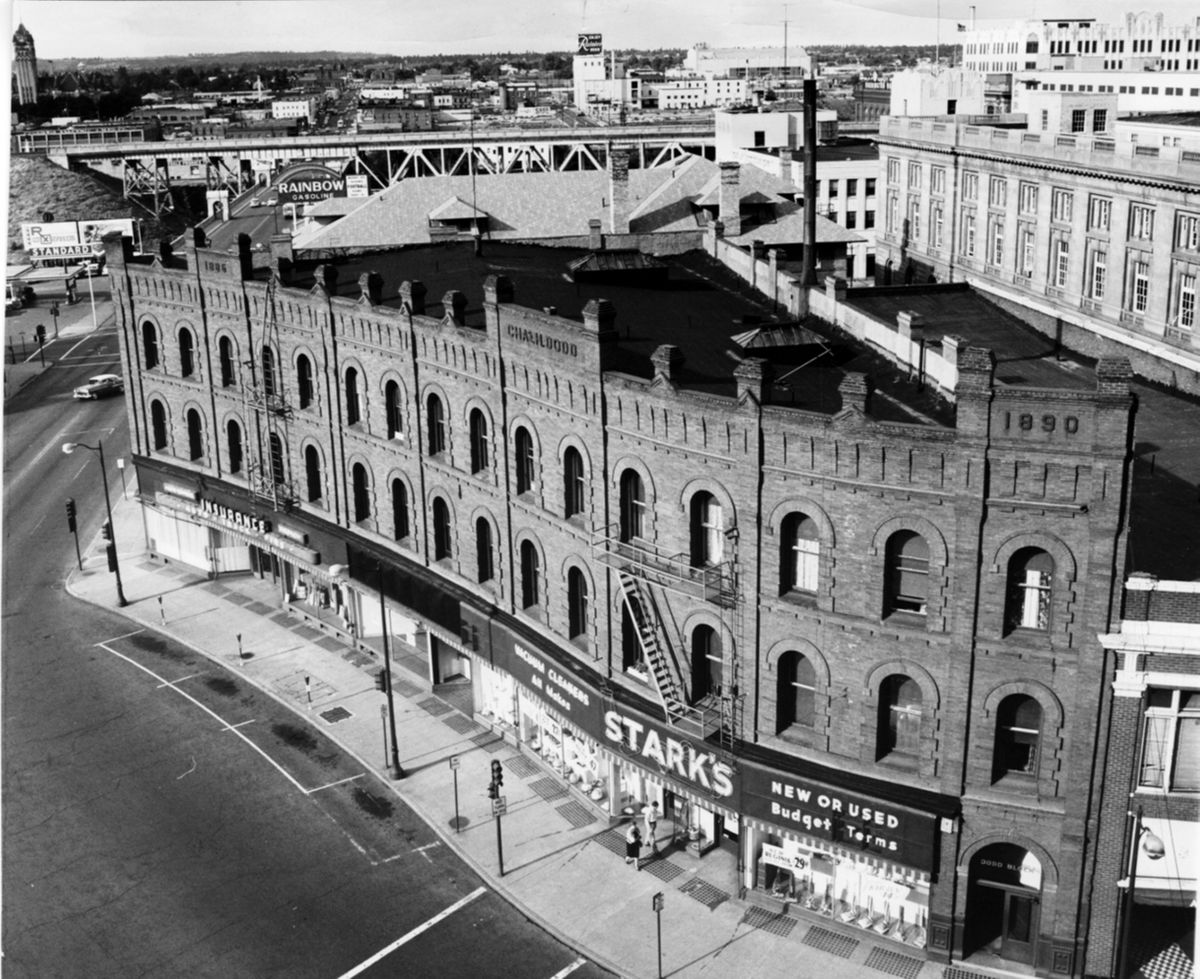Then and Now: Federal building in Dodd’s wake

The former Dodd Block in downtown Spokane was named for Charles H. Dodd, who was born in New York City in 1838.
At age 9, Dodd went to live with a well-to-do family in Stamford, Conn., and received an excellent education until the age of 16, when he entered Yale College. After two years there, he was recruited to build the new railroad through Panama in 1855. Later he worked for a shipping company and traveled extensively around South America.
During the Civil War, Dodd served in the Esmeralda Rifles, a California-based infantry unit that suppressed Native American uprisings in the Southwest states. After marrying in 1866, Dodd and his new wife, Lucy Sprout, settled in Salem and started a hardware store, later moving to Portland and joining another equipment business. He went on to build branch stores selling hardware and farm equipment in Oregon, Idaho and Washington, including Spokane in 1886.
Dodd lost his first building in Spokane’s massive 1889 fire, and six days later broke ground on a new S-shaped building at Riverside Avenue and Monroe Street. The empty lot had to be filled with gravel because it sloped to the north, down to the river canyon. The three-story building was across the street from the curved Crescent building, which lent its name to the department store that started there.
Dodd’s business left town in 1898, but the building later housed the dry goods store of Miller, Mower and Flynne, which was well-known for Irish linens.
In 1902, the Spokane Chronicle built a gymnasium in the basement of the Dodd, so newspaper carriers could play in a heated gym while waiting for papers to be dropped off. In 1964, the federal General Services Administration bought the aging Dodd and the buildings around it for the new $8 million federal building that opened in 1966. The serpentine curb line was changed to match the south side of the street, and a plaza with a fountain was built there.
Charles Dodd, one of Portland’s most influential citizens, died in 1921. He was instrumental in uniting three municipalities into the city of Portland, serving on the Portland school board and giving money to charitable causes.
– Jesse Tinsley